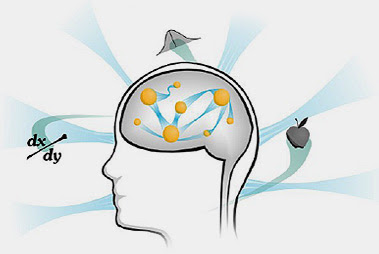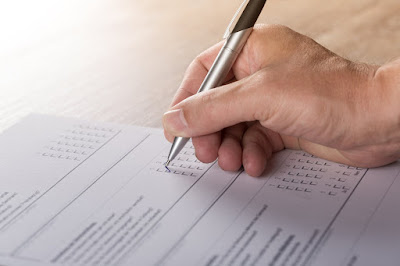How To Learn More and Study Less
It is a situation that many students go through: spend long hours studying a material and in the end feel that nothing has been learned. The grades do not improve, the motivation begins to fall. You feel identified? The professor of psychology Dr. Marty Lobdell , in his seminar " Study Less, Study Smart " shares his advice to make the study time and improve concentration. These are his 7 main tips:
1. Study in sessions of 25-30 minutes
For the academic, there is nothing less effective than studying in "marathons" of long hours without any pause. This statement is based, in addition to his personal experience and that of his colleagues, in a study of the University of Michigan that determined the period of optimal concentration of students . After half an hour of reading, the researchers found that the students were beginning to get distracted and their understanding of the text began to feel resentful.
Taking a short break of five minutes every half hour serves to "charge the batteries" after an effective study block. Lobdell recommends a rewarding activity during this break: "talking to your family, calling a friend or listening to music" are some examples.
2. Create a space solely for study
Very few people are lucky enough to have a room exclusively dedicated to reading. Instead, most study in their room, in the living room or at the kitchen table. However, being close to bed or recreation spaces can dramatically increase the chances of being distracted.
Lobdell recommends studying at a specially designed desk , where you can not have eye contact with any of these objects. Once your half hour of study is finished, you must leave that desk, and only return when you are ready to start over.
3. Study actively
There is a difference in learning data , such as the name of a bone or the inventor of psychoanalysis, and learning concepts , such as the function of that bone in the body or the goal of psychoanalysis. Many students try to memorize and repeat data and concepts alike. But the reality is that concepts are more important, because once you understand them you will never forget them.
First of all, you should ask yourself if what you are about to study is a data or a concept. If it's a concept, the best way to make sure you've learned it is to explain it in your own words. Instead of reviewing what you have highlighted in the text, you should test yourself to make sure that your mind will not be left blank in the exam.
4. Take good notes
At the end of the class, you should review your notes and supplement them with additional information or consult with a classmate or the teacher if you have not understood something very well. Make sure you do this as soon as possible.
5. Teach someone what you have learned
If you are able to teach someone the concept that was discussed in class, it means that you have really learned it. You can also identify the "weak points" in your understanding more easily.
6. Uses textbooks well
Do not settle for reading alone, as this is not enough. Lobdell proposes to make a quick reading of the chapter, to question yourself if you have understood it, to read it again, to recite and review.
7. Uses mnemonic resources to learn data
Learning data can be easier than learning concepts, but they are more likely to escape from memory quickly. For this reason, the academic recommends turning them into acronyms, phrases, rhymes or associate them with images. In this way you will remember them easily.
1. Study in sessions of 25-30 minutes
For the academic, there is nothing less effective than studying in "marathons" of long hours without any pause. This statement is based, in addition to his personal experience and that of his colleagues, in a study of the University of Michigan that determined the period of optimal concentration of students . After half an hour of reading, the researchers found that the students were beginning to get distracted and their understanding of the text began to feel resentful.
Taking a short break of five minutes every half hour serves to "charge the batteries" after an effective study block. Lobdell recommends a rewarding activity during this break: "talking to your family, calling a friend or listening to music" are some examples.
2. Create a space solely for study
Very few people are lucky enough to have a room exclusively dedicated to reading. Instead, most study in their room, in the living room or at the kitchen table. However, being close to bed or recreation spaces can dramatically increase the chances of being distracted.
Lobdell recommends studying at a specially designed desk , where you can not have eye contact with any of these objects. Once your half hour of study is finished, you must leave that desk, and only return when you are ready to start over.
3. Study actively
There is a difference in learning data , such as the name of a bone or the inventor of psychoanalysis, and learning concepts , such as the function of that bone in the body or the goal of psychoanalysis. Many students try to memorize and repeat data and concepts alike. But the reality is that concepts are more important, because once you understand them you will never forget them.
First of all, you should ask yourself if what you are about to study is a data or a concept. If it's a concept, the best way to make sure you've learned it is to explain it in your own words. Instead of reviewing what you have highlighted in the text, you should test yourself to make sure that your mind will not be left blank in the exam.
4. Take good notes
At the end of the class, you should review your notes and supplement them with additional information or consult with a classmate or the teacher if you have not understood something very well. Make sure you do this as soon as possible.
5. Teach someone what you have learned
If you are able to teach someone the concept that was discussed in class, it means that you have really learned it. You can also identify the "weak points" in your understanding more easily.
6. Uses textbooks well
Do not settle for reading alone, as this is not enough. Lobdell proposes to make a quick reading of the chapter, to question yourself if you have understood it, to read it again, to recite and review.
7. Uses mnemonic resources to learn data
Learning data can be easier than learning concepts, but they are more likely to escape from memory quickly. For this reason, the academic recommends turning them into acronyms, phrases, rhymes or associate them with images. In this way you will remember them easily.



Comments
Post a Comment